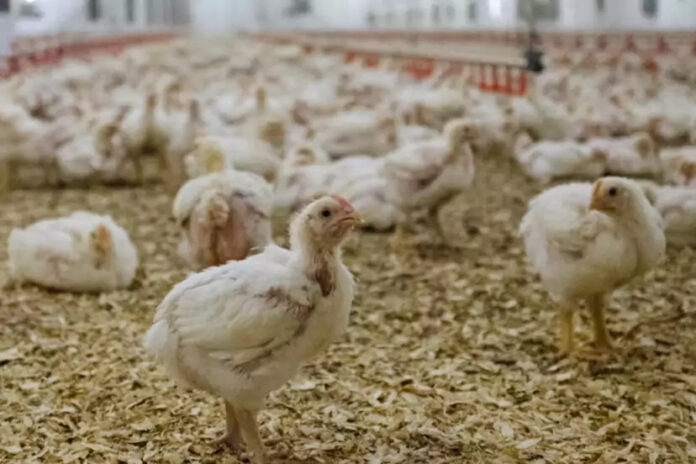With the return of migrating birds, avian flu is beginning to seep into backyards. To help breeders fight the H5N1 influenza virus, Quebec is granting $800,000 to the Quebec Poultry Disease Control Team.
The Minister of Agriculture, Fisheries and Food, André Lamontagne, made the announcement Thursday afternoon, in Saint-Hyacinthe, during the annual general meeting of the Fédération des producteurs d’œufs du Quebec.
“This investment will allow us to be better prepared for future waves,” he said during his address to growers. “We have a responsibility to remain cautious in order to protect the farms of our producers. »
Since Monday, three new Quebec farms have been infected with the virus. A total of 12 Quebec herds are currently managing active infections. They are located in three RCMs: Rouville, Beauharnois-Salaberry and Haut-Saint-Laurent.
The Quebec Poultry Disease Control Team was set up in 2009. It plays a pivotal role between the industry and government authorities to prevent and fight poultry diseases.
This financial assistance will be used to update biosecurity protocols, train producers, develop field expertise in the cleaning and disinfection of buildings, produce a guide to good practices in the construction of poultry houses for small farms and hire staff. .
It will also allow the purchase of equipment and the development of new technologies to “rapidly eradicate” birds from affected farms, in compliance with animal welfare laws.
The very first case of avian influenza H5N1 detected in a farmed bird in Quebec history occurred in April 2022. Since then, 35 “commercial” or “artisanal” farms have experienced an outbreak in the province.
Approximately 678,000 farmed birds have been “affected” in Quebec and 7.2 million in Canada. “Affected” birds succumbed to the disease or were euthanized on the spot to curb the spread of the virus within the flock or nearby farms and buildings.
“This financial assistance will be used to implement technological and logistical solutions to better protect poultry flocks and minimize the impact of this disease on the poultry product supply chain,” Paulin Bouchard said in a statement. , who is both president of the Federation of Egg Producers of Quebec and president of the Quebec Poultry Disease Control Team.
If cases of avian flu have spread at such lightning speed, it is primarily because the virus has never been so present in wild species. Ducks, geese, barnacles, sandpipers, gannets, common eiders, guillemots, razorbills, crows, ravens, snowy owls, eagle-owls, gulls: dozens of species of wild birds have been infected.
One of the vectors of spread to farms would come from the secretions or droppings of wild birds that would inadvertently end up on agricultural equipment or the soles of workers.
With good weather, migratory birds carrying the bird flu virus return. Cases on farms are therefore likely to skyrocket in the coming months.


















